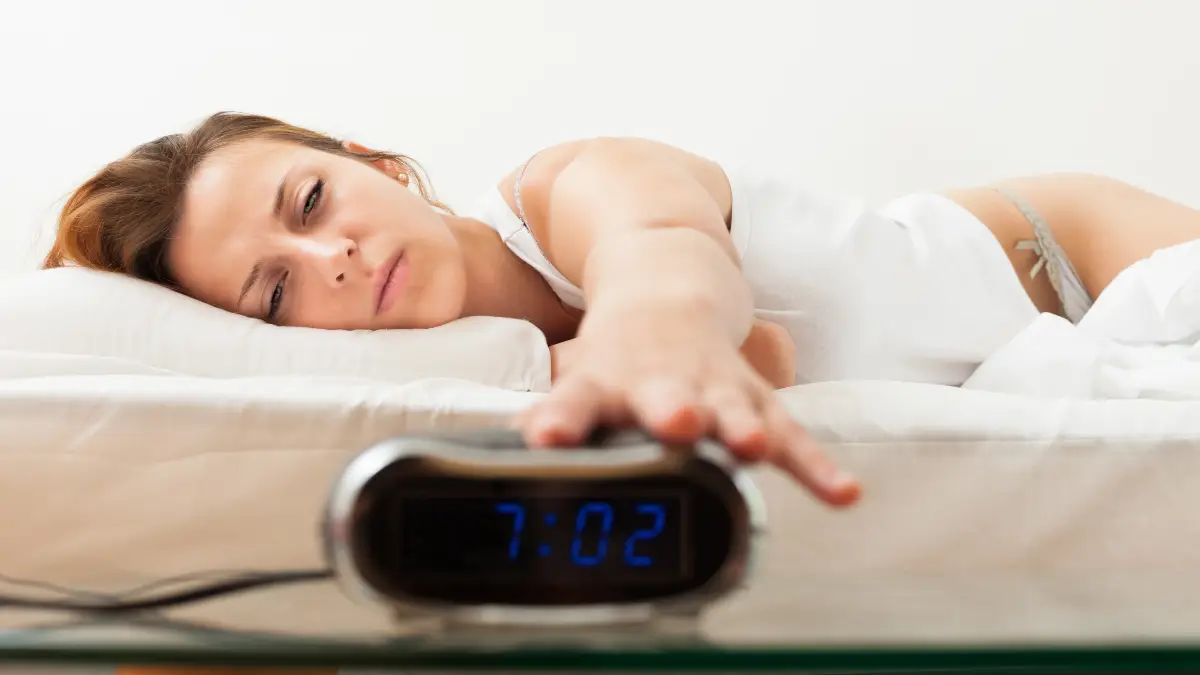You’ve followed all the rules—cut calories, ate ‘healthy’ fats, and did hours of cardio—so why isn’t the scale moving? It’s a frustrating cycle.
You stick to the advice you see plastered all over social media, only to feel defeated when your hard work leads nowhere or even makes you gain weight. The problem isn’t your willpower; it’s the mountain of bad information standing in your way.
This guide cuts through that noise. We’re going to use real science to bust the 14 biggest weight loss myths that are secretly sabotaging your progress. You’ll finally understand why these common strategies backfire and learn what actually works for getting healthy for good.
1. Is Weight Loss Really Just “Calories In vs. Calories Out”?

You’ve probably heard that weight loss is just “calories in vs. calories out.” The idea is that you just need to burn more calories than you eat. While you do need to burn more calories than you eat to lose weight, this idea is way too simple. It’s a big reason why so many people fail when they try to lose weight.
Your body is not a calculator. It fights back when you change how much you eat. One way it does this is by changing your metabolism. As you lose weight, your body starts burning fewer calories when you’re resting. This happens because a smaller body needs less energy. To keep losing weight, you have to eat even less or exercise more. This is why so many people hit a weight loss plateau.
The “calories in, calories out” idea also ignores hormones. When you diet, your hunger hormones can go crazy, making you feel starving. This feeling can be too strong to fight with just willpower. Your body is unique, too. Two people can eat the same food and do the same exercises but get very different results. This is because of things like genes, sleep, and stress.
The worst part about this myth is how it makes you feel. It makes weight loss sound like a simple math problem. So if you don’t lose weight, you feel like it’s your fault. This puts all the blame on you and ignores how your body is built to survive.
Stop counting every calorie. Focus on eating better quality food, getting enough sleep, and managing stress. Learn to listen to your body’s real hunger signals.
2. Are All Calories the Same?

If you believe the simple “calories in, calories out” myth, you might also think all calories are the same. This is the idea that 100 calories from a soda are the same as 100 calories from chicken. This is completely wrong. Your body treats calories differently depending on where they come from.
Your body processes protein, carbs, and fat in different ways. Protein has a high “thermic effect,” which means your body burns a lot of calories just digesting it. Protein also makes you feel full, so you eat less overall.
Carbs with a lot of fiber, like vegetables, digest slowly. This keeps your blood sugar steady and helps you feel full longer. Healthy fats, like in avocados, are needed for hormones and also help you feel satisfied.
On the other hand, your body digests sugar and refined carbs very quickly. This causes your blood sugar to spike and then crash.
That crash can make you feel hungry and crave more junk food. So even if the calorie number is the same, your body’s reaction is very different. If you only focus on the number of calories, you miss the whole picture.
Focus on the quality of your calories, not just the quantity. Build your meals with lean protein, healthy fats, and high-fiber carbs. This will help you control hunger and keep your energy levels stable.
3. Do You Have to Cut Carbs to Lose Weight?

Many people think carbs make you gain weight. This has made low-carb diets very popular. But this myth gets it wrong by treating all carbs as the enemy. The truth is, you gain weight when you eat too many calories from any food, not just carbs. Gram for gram, carbs have fewer calories than fat.
You have to know the difference between good carbs and bad carbs. Complex carbs are found in whole grains, fruits, and vegetables.
They have fiber and vitamins. Your body digests them slowly, which is great for managing weight. Refined carbs are in things like white bread and pastries. They have no fiber, digest quickly, and can make you overeat.
When people first go on a low-carb diet, they often lose a lot of weight fast. But this isn’t fat loss. It’s mostly water weight. Your body stores carbs with water. When you stop eating carbs, your body gets rid of that stored water.
This makes the number on the scale go down, which feels great, but it’s misleading. As soon as you eat carbs again, the water weight comes right back.
Don’t be afraid of carbs. Health experts say about half of your daily calories should come from them. Choose high-fiber carbs like vegetables, fruits, and whole grains. Try to limit sugar and white bread.
4. Does Eating Fat Make You Fat?

For a long time, people were told that eating fat would make them fat. This is a myth that just won’t go away. The truth is, you gain weight when you eat more calories than you burn. Those extra calories can come from protein, carbs, or fat. Dietary fat is not the bad guy. In fact, your body needs it.
Healthy fats, like the ones in avocados, nuts, and olive oil, are very important. Your body needs them to absorb certain vitamins and make hormones. Fat also helps you feel full after you eat, which can stop you from snacking on other things later.
The old “war on fat” actually made things worse. Food companies took fat out of their products but added a lot of sugar and salt to make them taste good.
This may have led people to eat more refined carbs and sugar, which we now know can cause weight gain. The goal isn’t to stop eating fat. It’s to eat the right kinds of fat.
Eat healthy fats as part of a balanced diet. The Dietary Guidelines for Americans says to limit saturated fats, which are usually found in meat and dairy, to less than 10 percent of your daily calories.
5. Does Skipping Meals Help You Lose Weight?

It seems to make sense. If you skip a meal, you eat fewer calories, right? But your body is smarter than that. Skipping meals is a bad plan that usually makes you gain weight.
When you don’t eat for a long time, your body thinks there’s a food shortage. It might slow down your metabolism to save energy.
This means you burn fewer calories. At the same time, your hunger hormones go into overdrive. You get very hungry and start craving junk food. When you finally do eat, you’re much more likely to eat too much.
What about breakfast? Some studies say people who eat breakfast are thinner, while other studies say it doesn’t matter.
The real key seems to be what you eat for breakfast. A breakfast with a lot of protein and fiber can help you control your appetite all day. If you skip it, you might get so hungry by mid-morning that you grab a donut.
Eat balanced meals at regular times. This keeps your metabolism steady and your hunger under control. If you eat breakfast, make sure it has protein and fiber to keep you full.
6. Do “Detox” Teas and Cleanses Really Work?

You see them all over social media. “Detox” teas and cleanses promise to help you lose weight and clean out your body with no effort. But these promises are not based on science. They are based on a misunderstanding of how your body works.
Your body already has an amazing detox system: your liver and kidneys. They work all day, every day to filter out bad stuff. They don’t need any help from an expensive tea. In 2015, a review of studies found no good evidence that detox diets help with weight loss or getting rid of toxins.
So why do some people lose weight on these cleanses? It’s not fat they’re losing. It’s water and waste. The ingredients often have a laxative effect. This is a temporary loss that comes right back when you start eating normally again.
These products can also be risky. They aren’t regulated, and some have been found to contain dangerous ingredients. They can cause you to become dehydrated and lose important nutrients.
Help your body’s natural detox system. Drink plenty of water, eat lots of fruits and vegetables, and cut back on processed foods and alcohol.
7. Is a “Cheat Day” Good for Your Metabolism?

The idea of a “cheat day” is popular. The theory is that after a week of dieting, a day of eating whatever you want can trick your body and boost your metabolism.
While a big meal can give you a small, temporary metabolism boost, it’s not enough to make up for all the extra calories you eat. One cheat day can easily wipe out a whole week of hard work.
But the bigger problem is what a “cheat day” does to your mind. It creates an unhealthy relationship with food. It makes you think of food as “good” or “bad.” This can make you obsessed with the “bad” foods you’re not allowed to have.
Then, on your cheat day, you might feel like you have to eat as much of them as you can. This can feel a lot like binge eating and is not a healthy habit.
Forget the “cheat day.” Try a more flexible plan like the 80/20 rule. This means you eat healthy, nutrient-rich foods 80% of the time.
The other 20% of the time, you can enjoy your favorite treats without feeling guilty. It’s better to spread these treats out through the week instead of eating them all in one day.
8. Is Diet Soda a “Free Pass”?

Diet sodas have zero calories, so many people think they are a great tool for weight loss. And in a way, they can be. Studies show that switching from sugary drinks to diet drinks can help. The problem with diet soda isn’t in the drink itself. It’s in how it changes your behavior.
There is a link between drinking diet soda and being overweight. This doesn’t mean diet soda causes weight gain. Instead, it might be because of something called “calorie compensation.”
You might think, “I’m drinking a diet soda, so I can have extra fries.” You give yourself permission to eat more unhealthy food because you “saved” calories on the drink. This can make you eat more calories overall and gain weight.
What about insulin? Some people worry that artificial sweeteners can cause your body to release insulin. While it’s possible they can cause a tiny insulin spike, studies show it’s too small to have any real effect.
A diet soda can be a good substitute for a sugary drink. But don’t let it be an excuse to eat more junk food. And remember, water is always the best choice for staying hydrated.
9. Can You Out-Exercise a Bad Diet?

Many people believe they can eat whatever they want as long as they exercise a lot. This is a common and dangerous myth. For most of us, it’s just not possible. As one dietitian said, “You can’t outrun a bad diet.”
Think about the numbers. A tough 45-minute workout might burn 400 to 500 calories. And your fitness tracker probably overestimates that number.
Now think about a single slice of cheesecake or a burger and fries. That can easily be 1,000 calories or more. You would have to exercise for hours to burn that off.
This myth is also kept alive because people often reward themselves with food after a workout.
You might feel like you “earned” a treat. But this just cancels out all the calories you just burned. Diet and exercise are not enemies. They work together. You’ll only see real, lasting results when you pay attention to both.
Think of food and exercise as a team. Use exercise to get stronger, improve your heart health, and feel good, not as a punishment for what you ate.
10. Should You Only Do Cardio to Lose Fat?

Cardio machines show you a big number of “calories burned,” so it’s easy to think that’s all you need for fat loss. And it’s true that cardio is great for burning calories. But if you only do cardio, you’re missing a key part of the puzzle.
The real secret to long-term weight loss is to increase the number of calories your body burns when you’re resting. This is where strength training comes in. Lifting weights builds muscle.
And muscle burns more calories than fat, even when you’re just sitting on the couch. If you only do cardio, you can lose muscle along with fat. This can actually lower your metabolism and make it harder to keep the weight off.
Many studies show that the best way to lose fat and change your body shape is to do a combination of cardio and strength training. The cardio burns calories right away, and the strength training builds your body’s calorie-burning engine for the long run.
For the best results, do both cardio and strength training. A good goal is at least 150 minutes of cardio, like brisk walking, and two or three strength training sessions each week.
11. Will Lifting Weights Make You “Bulky”?

Many people, especially women, are afraid that lifting weights will make them look “bulky.” This fear keeps them out of the weight room, and they miss out on some amazing health benefits. But this fear is based on a myth.
It’s very hard to build big muscles. It takes a lot of very specific, intense training, eating a lot of extra calories, and high levels of the hormone testosterone. Women have much less testosterone than men. This makes it almost impossible for them to get bulky from a normal strength training routine.
For most people, lifting weights will make them look stronger, leaner, and more “toned.” This is because muscle is much denser than fat.
A pound of muscle takes up a lot less space than a pound of fat. So, as you build muscle and lose fat, you will lose inches and look smaller, even if the number on the scale doesn’t change much.
Don’t be afraid to lift weights. You don’t have to use heavy barbells. You can use dumbbells, resistance bands, or even your own body weight with exercises like push-ups and squats.
12. Is Slow Weight Loss Always Better?

You’ve probably heard the saying, “slow and steady wins the race.” For a long time, the advice has been to lose only one or two pounds a week. The idea was that if you lose weight any faster, you’ll just gain it all back. But new research is starting to question this idea.
Some studies now show that losing a lot of weight at the beginning of a program can be a great motivator. Seeing big results early on can make you feel more confident and more likely to stick with your new healthy habits.
The important thing is not how fast you lose the weight, but how you lose it. If you lose weight quickly by going on a crazy crash diet, you will probably gain it back. That kind of “yo-yo dieting” is bad for you. But if you lose weight quickly as part of a healthy, structured plan with support, it can be a safe and effective way to start.
Focus on finding a healthy plan that you can stick with for the long term. A faster start can be good if it helps you build healthy habits.
13. Does Sleep Really Matter for Weight Loss?

When people talk about losing weight, they usually talk about diet and exercise. Sleep is often forgotten.
This is a huge mistake. Sleep is the third pillar of health. If you ignore it, you can ruin all your hard work with diet and exercise. Getting less than seven hours of sleep a night is linked to a higher risk of being overweight.
Not getting enough sleep messes with your body in a few big ways. It throws your hunger hormones out of balance. The hormone that tells you you’re full goes down, and the hormone that tells you you’re hungry goes up.
This makes you feel starving, even if your body doesn’t need food. Lack of sleep also raises your stress hormones, which can make your body store more fat, especially around your belly.
On top of that, when you’re tired, your brain doesn’t work as well. The part of your brain that helps you make good decisions and control your impulses gets sluggish.
This makes it much harder to say no to junk food. It’s a bad cycle: not enough sleep leads to weight gain, and being overweight can make it harder to sleep well.
Make sleep a priority. Aim for seven to eight hours of quality sleep every night. Go to bed and wake up at the same time every day. Make your bedroom cool, dark, and quiet.
14. Is Your Weight All Because of Your Genes?

It’s easy to blame your genes for your weight. And it’s true that your genes do play a role. They can affect your metabolism and how your body stores fat. But your genes are not your destiny.
Your lifestyle choices can actually change how your genes work. Things like what you eat, how much you move, and how much you sleep can turn certain genes “on” or “off.” You might have genes that give you a slower metabolism.
But if you lift weights and eat enough protein, you can build muscle and speed up your metabolism. As one dietitian said, your genes might load the gun, but your lifestyle pulls the trigger.
Blaming your genes can make you feel helpless. It can make you feel like there’s no point in trying to make healthy changes. But the truth is, the choices you make every day have a much bigger impact on your weight than the genes you were born with.
Don’t get stuck on what you can’t change. Focus on the things you can control. Your diet, your exercise, your sleep, and your stress levels are the most powerful tools you have for getting healthy.


